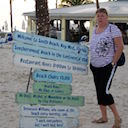Crash cart supply & equipment checklist for medical emergencies
Recommended emergency equipment for crash carts
- Airway (oral and nasal) all sizes
- McGill forceps, large and small
- 3 laryngoscope and endotracheal tubes
- Bag valve mask (adult and pediatric)
- Nasal cannula (adult and pediatric)
- Non rebreather oxygen face masks (3 sizes)
- IV start packs
- Normal saline solution (1000ml bags)
- IV tubing
- Angiocaths (various sizes)
- 10ml normal saline flush syringes (3)
- Gauze
- Alcohol preps
- Monitor with defibrillator (preferred) or AED
- Syringe nasal adaptor (nasal narcan atomizer)
-
A checklist confirming everything that should be on the cart
(print this page, or buy our laminated checklist)
*Follow manufacturer guidelines on use of equipment
Essential medications for crash carts
- Aspirin 81mg tablets (4)
- Nitroglycerin spray or 0.4mg sublingual tablets (3)
- Dextrose 50% (dextrose 25% if treating pediatrics)
- Narcan 1mg/ml (6)
- Epinephrine 1:10,000 auto injector (10)
- Atropine sulfate 1mg (3)
- Amiodarone 150 mg Vial (3)
- EpiPen® or epinephrine 1:1,000 (2)
- EpiPen Jr® or epinephrine 1:1,000 (2)
- Solumedrol 125 mg (1)
- Benadryl 50 mg vial (2)
- Adenosine 6 mg (3)
- Lopressor 10 mg (2)
- Cardizem 20 mg vial (2)
- Pronestyl (procainamide) 1g (1)
- Lidocaine 100 mg (3)
*Follow your organization’s guidelines for administering and mixing medication.
Why a crash cart is essential for emergency response
Any environment in which a patient may unexpectedly experience a medical emergency needs to have the equipment to deal with that emergency efficiently. That’s the job of a crash cart. A crash cart contains the equipment and medications that would be required to treat a patient in the first thirty minutes or so of a medical emergency. Although crash carts can differ somewhat depending upon their location, the basic crash cart will contain similar equipment.
Code red hospital.
Show off your cart
You seem like somebody that cares about having your cart in good order! Please send us a photo of your cart on .
Any facility that treats patients who have the potential to have a sudden deterioration in their condition should have a crash cart available. State regulatory agencies require certain facilities to have a crash cart, but they are recommended for many more. This would include hospitals, outpatient surgery centers, urgent care centers, and all centers where conscious sedation is performed. Nursing homes who provide treatment for patients in cardiac arrest until EMS arrives would also have a need for a crash cart. Physician offices who perform certain diagnostic testing such as cardiac stress testing or stress echocardiogram also must have a crash cart available.
There is a basic list that all crash carts contain. All carts contain:
- Basic airway equipment including bag valve masks, oral and nasal airways, oxygen masks and nasal cannulas, Magill forceps
- Intravenous access equipment (or intraosseous) including angiocaths, IV tubing and IV fluid. If the facility elects to utilize intraosseous access for emergency medications, then a drill and needles must be included.
- Medications utilized in the treatment of cardiac arrest including epinephrine and amiodarone.
- Medications utilized to treat cardiac dysrhythmias including adenosine, cardiazem, a beta blocker (usually Lopressor®), and atropine.
- Monitor equipment with a defibrillator or an AED
- Medications to treat allergic reactions such as EpiPens®, Solu-medrol® and Benadryl®
- Aspirin 81mg PO
- Nitroglycerin spray or 0.4mg tablets
Additionally, carts being utilized for specialized areas may add or subtract from the basic list. Depending upon the specialty of the facility, the following may be added:
- Endotracheal intubation equipment if anesthesia personnel are present in the facility
- King Airways — in facilities without anesthesia personnel or as a bail out airway for the patient with a difficult airway
- Narcan — to reverse the effects of narcotics in facilities where narcotics or sedation is used
- Additional antiarrhythmics — particularly in physician offices who do cardiac stress testing
Best practices for crash cart maintenance and management
The worst thing ever is to reach for a piece of emergency equipment or an emergency medication and find it inoperable or expired. It is important that the crash cart be checked regularly and maintained so that its contents are there when needed.
The following is a maintenance routine that should be completed at least monthly:
- Expiration dates on medications should be checked on the first day of the month
- Expired medications should be promptly removed and replaced
- The defibrillation pads on the AED or the defibrillator should be checked for expiration date
- The battery charge on the monitor and/or AED should be checked and documented
![]() New! We now sell a laminated checklist that you can keep on the
crash cart for reference.
New! We now sell a laminated checklist that you can keep on the
crash cart for reference.
Region-specific crash cart requirements and guidelines
State/provincial departments of health may amend these requirements. We are aware of the following local requirements.
Illinois
- Pediatric carts must include a cricothyrotomy kit, per one audit report
- Indiana Hospital Licensure Rules are authoritative
- For questions: IN DOH, Acute Care / John Lee, Program Director Hospitals/ASCs / 317-233-7487 / jlee@isdh.in.gov
Top retail suppliers for crash cart equipment and supplies
Mainline Medical: leading supplier for crash cart supplies
Supplier for anesthesia and respitory equipment with name brand products and wide selection. This is a small women-owned business with particular attention to customer support and they can help you pick the products you need.
Mention ACLS Training Center for special pricing on your first order.
Call 800-366-2084 and ask for Nancy or see https://mainlinemedical.com/
Cardinal Health: your source for comprehensive crash cart equipment
Provides all drugs listed here. Minimum account spend is $50,000 per month to create an account. (If your practice is part of a hospital network, they may already have an account.)
Call 866-551-0531 or https://www.cardinalhealth.com/en.html
Boundtree Medical: high-quality crash cart supplies
All drug items listed here are available from Boundtree with no account minimums.
Mention ACLS Training Center for 10% off your first order.
Did you find what you are looking for? If not, email us at support@ACLS.netEmail
See our ACLS crash cart FAQ for more information on crash carts.

Written by Judy Haluka, a cardiovascular invasive specialist and paramedic since the 1990s. She is certified as an instructor through the American Heart Association, the Health and Safety Institute, and the National Association of Emergency Medical Technicians.
More by this author:

Reviewed by Jessica Munoz DPN, RN, CEN, providing nurse training at Yale New Haven Health-Bridgeport Hospital since 2022. Previously in healthcare and education at Griffin Hospital, St. Vincent's College of Nursing and Sacred Heart University Medical Center.
More by this author: